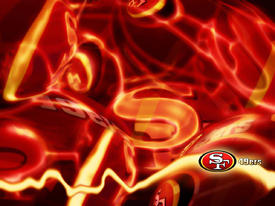We are pleased to announce that as of March 4, 2025, an updated Rich Text Editor has been introduced in the MyFitnessPal Community. To learn more about the changes, please click here. We look forward to sharing this new feature with you!
Loose skin, does this affect body fat calipers accuracy???

montanadanni
Posts: 184 Member
Hi everyone!
If someone has slightly loose skin( I don't mean fat, I mean skin and only skin) from big weight loss, will this affect when using body fat calipers?
For example if the tummy, upper arms, inner thighs have this saggy skin left how is a body fat caliper going to read that accuratly?
For me personally I have very little loose skin only in lower tummy and I hope to tighten it up more but my doctor said that some might never go away, no matter how lean and toned I get. So if I am very lean but still have skin, will the calipers read me as higher body fat since it can latch on to my loose skin?
What are your thoughts?
If someone has slightly loose skin( I don't mean fat, I mean skin and only skin) from big weight loss, will this affect when using body fat calipers?
For example if the tummy, upper arms, inner thighs have this saggy skin left how is a body fat caliper going to read that accuratly?
For me personally I have very little loose skin only in lower tummy and I hope to tighten it up more but my doctor said that some might never go away, no matter how lean and toned I get. So if I am very lean but still have skin, will the calipers read me as higher body fat since it can latch on to my loose skin?
What are your thoughts?
0
Replies
-
What a fantastic question! I hope to see answers to this one!0
-
it seems like it would affect the results, but I have no real experience with this and can't tell you for sure.0
-
I think that's how they're supposed to work. I thought they were designed for just this?0
-
I think that's how they're supposed to work. I thought they were designed for just this?
No, they are designed to measure ones body fat % not how thick excess skin is.0 -
it seems like it would affect the results, but I have no real experience with this and can't tell you for sure.
I would think it would too. I wonder if there is a more accurate way to read body fat % for someone with loose skin?0 -
This article rates the various methods. Bod Pod, Dexa, and the water tank thing seem to be tops:
http://www.medicinenet.com/script/main/art.asp?articlekey=568300 -
I don't really think skin is "thick" I would assume that if it feels thick then there may be some fat there as well. I am no expert of course just my opinion. Which may be wrong.0
-
Is the number that important if you are getting results?0
-
no, the calipers will get a good reading regardless.0
-
I thought that to get an accurate reading using calipers it is important to take readings on various body locations and average them. So an area with loose skin probably would not affect the overall reading that much.0
-
I think it could affect your reading, depending on how much skin we're talking about here...but regardless, it would give you a baseline number. If the readings continually go down, and you're seeing results in the mirror, that's more important that the actual number in my opinion.

I mean, calipers just pinch...they don't tell you "oh, well this pinch is 20% skin and 80% fat" or vise versa...I don't think they are designed for people with tons of extra skin. Now just a small amount of excess skin probably won't affect it much...there's about a 3% margin of error anyway, even when it's done by someone experienced with caliper testing.0 -
I've been kinda curious about this too. It seems to me that when they use calipers that they pinch up and measure what's under the skin not the skin itself so much. But like the other poster said even if its not 100% right on it gives you a general base to go by so you can tell if you are at least reducing body fat...0
-
Yes, it does.0
-
Yes, it does.
No skin is skin, weather it is lose or not. Unless you wad up several layers of skin in the caliper, it will have no effect on the test.1 -
Yes, it does.
No skin is skin, weather it is lose or not. Unless you wad up several layers of skin in the caliper, it will have no effect on the test.
The fat is under the skin, how do they measure the fat without measuring the skin that takes up the space where the fat (or baby in women that have had children) once was (keep in mind the actual thickness of the many layers of skin on either side, fully surrounding the fat)? I'm not arguing. I am asking for info. Because clearly I need an accurate explanation of this, to be able to understand what you are claiming.
It is confusing for some people. Sometimes people that have a bmi of 16 post photos on here, pulling at their loose skin (from rapid weight loss) and think it is fat.0 -
I suppose what people are saying is that you still put the skin in the calipers (as you have to because it is over the fat), but the thickness of the measurement would be from the fat under the skin.0
-
The fat is under the skin, how do they measure the fat without measuring the skin that takes up the space where the fat (or baby in women that have had children) once was (keep in mind the actual thickness of the many layers of skin on either side, fully surrounding the fat)? I'm not arguing. I am asking for info. Because clearly I need an accurate explanation of this, to be able to understand what you are claiming.
It is confusing for some people. Sometimes people that have a bmi of 16 post photos on here, pulling at their loose skin (from rapid weight loss) and think it is fat.I suppose what people are saying is that you still put the skin in the calipers (as you have to because it is over the fat), but the thickness of the measurement would be from the fat under the skin. 0
0 -
Yes, it does.
No skin is skin, weather it is lose or not. Unless you wad up several layers of skin in the caliper, it will have no effect on the test.
This makes sense to me. I imagine that if your skin is loose, you'll just have a longer flap of skin to pinch - but the WIDTH of the pinched skin would be the same as if your skin were taut. Like... if the upholstery on your couch is loose and you pinch up a flap of it - the two pieces of fabric are the same width as if the upholstery were tight, but it's easier to pull more fabric up.
This is just my (possibly incorrect) deduction though. 0
0 -
Yes, it does.
No skin is skin, weather it is lose or not. Unless you wad up several layers of skin in the caliper, it will have no effect on the test.
This makes sense to me. I imagine that if your skin is loose, you'll just have a longer flap of skin to pinch - but the WIDTH of the pinched skin would be the same as if your skin were taut. Like... if the upholstery on your couch is loose and you pinch up a flap of it - the two pieces of fabric are the same width as if the upholstery were tight, but it's easier to pull more fabric up.
This is just my (possibly incorrect) deduction though.
Yeah, that is what I think also (based on the responses here). I don't use calipers. My husband is a physicist and can do hydrostatic weighing for me. I just thought it seemed logical that loose skin would be one of the factors that results in false readings. But, this seems to be the reason it doesn't.
Prior to this, I was thinking of it this way:I think it could affect your reading, depending on how much skin we're talking about here...but regardless, it would give you a baseline number. If the readings continually go down, and you're seeing results in the mirror, that's more important that the actual number in my opinion.
I mean, calipers just pinch...they don't tell you "oh, well this pinch is 20% skin and 80% fat" or vise versa...I don't think they are designed for people with tons of extra skin. Now just a small amount of excess skin probably won't affect it much...there's about a 3% margin of error anyway, even when it's done by someone experienced with caliper testing.0 -
While the thickness of the skin is figured into the calculation of body fat measurement for calipers, what is being pinched to measure is the thickness of mass between a pinched area. If you pinched and were only holding just loose skin between and did the measurement, it would be inaccurate.
You can pinch skin on the back of your hand and if that was used as a measurement (like pinching loose skin around your arms for example) then the measurement would be wrong.
A.C.E. Certified Personal and Group Fitness Trainer
IDEA Fitness member
Kickboxing Certified Instructor
Been in fitness industry for 30 years and have studied kinesiology and nutrition0 -
While the thickness of the skin is figured into the calculation of body fat measurement for calipers, what is being pinched to measure is the thickness of mass between a pinched area. If you pinched and were only holding just loose skin between and did the measurement, it would be inaccurate.
You can pinch skin on the back of your hand and if that was used as a measurement (like pinching loose skin around your arms for example) then the measurement would be wrong.
A.C.E. Certified Personal and Group Fitness Trainer
IDEA Fitness member
Kickboxing Certified Instructor
Been in fitness industry for 30 years and have studied kinesiology and nutrition
Thanks!
Do the calipers come with calculations that factor out the thickness of the skin on the various parts of the body? I'm going to look into it more and maybe try the calipers. They did not seem like a very accurate method to me, although they are better than the scales (which are a scam).0 -
Normally the measurement is in millimeters then you use that measurement against a chart and use some mathematics (sum of measurements). Here are a couple:While the thickness of the skin is figured into the calculation of body fat measurement for calipers, what is being pinched to measure is the thickness of mass between a pinched area. If you pinched and were only holding just loose skin between and did the measurement, it would be inaccurate.
You can pinch skin on the back of your hand and if that was used as a measurement (like pinching loose skin around your arms for example) then the measurement would be wrong.
A.C.E. Certified Personal and Group Fitness Trainer
IDEA Fitness member
Kickboxing Certified Instructor
Been in fitness industry for 30 years and have studied kinesiology and nutrition
Thanks!
Do the calipers come with calculations that factor out the thickness of the skin on the various parts of the body? I'm going to look into it more and maybe try the calipers. They did not seem like a very accurate method to me, although they are better than the scales (which are a scam).
http://www.langeservicecenter.com/Lange Manual.pdf
http://www.muscleandstrength.com/tools/how-to-measure-bodyfat-using-calipers.html
Always measure each area twice to ensure correct reading.
A.C.E. Certified Personal and Group Fitness Trainer
IDEA Fitness member
Kickboxing Certified Instructor
Been in fitness industry for 30 years and have studied kinesiology and nutrition0 -
What about if a DXA scan was done? I had a DXA scan done 4/26/13 and was wondering if my loose skin is shown as body fat or tissue? My DXA scan said I was 24% body fat which the college professor who did the test said was very good for my age. I looked at some online charts for % of body fat and 24% is condsidered in the "fitness Level" for women.
I didn't think to ask the professor what the loose skin would count as? Any ideas?0 -
This is an interesting page mostly cause it seems to agree with my theory
 Both my Boy friend and I have lost a great amount of weight (He 150 and I a total of 82 lbs). We are very different when it comes to where our skin sags and how much it sags but I do know no matter what test we do, I am not 17% fat nor is he 9% At this point of weight lost with me at 23% fat and he at 15% fat I assumed that to get the tightness some what back, we would have to tone down to get under all the tucked away fatty skin parts and this artical says it all. I do think we may have a bit of skin left on a couple of areas but it most likely will be thinner, paper like and not that fatty consistency that you can really pinch on to. http://www.muscleforlife.com/how-to-get-rid-of-loose-skin-after-weight-loss/ 0
Both my Boy friend and I have lost a great amount of weight (He 150 and I a total of 82 lbs). We are very different when it comes to where our skin sags and how much it sags but I do know no matter what test we do, I am not 17% fat nor is he 9% At this point of weight lost with me at 23% fat and he at 15% fat I assumed that to get the tightness some what back, we would have to tone down to get under all the tucked away fatty skin parts and this artical says it all. I do think we may have a bit of skin left on a couple of areas but it most likely will be thinner, paper like and not that fatty consistency that you can really pinch on to. http://www.muscleforlife.com/how-to-get-rid-of-loose-skin-after-weight-loss/ 0 -
This is an old post but here are my thoughts. Fat is under the skin, so if for the abdomen pinch there is 1 pound of fat under 50 square inches of skin for a normal person, for a person with loose skin the same pound of fat is distributed under 100 square inches of skin (in a extreme example where one would have double the surface of skin) and the fold will be thinner. So in a person with loose sin, by this train of thought, the caliper method will underestimate bodyfat %.0
-
Well, having this thread pop up is super helpful. I ordered a caliper and it will be arriving today!0
-
But it's usually not dispersed that way. Fat cells lie under the skin and systematically fill by where one's body hold most/least. Everyone hold fat differently with the possible exception of identical twins. Skin that hangs from previous weight loss usually doesn't have a lot of fat under it unless a major weight regain happened.This is an old post but here are my thoughts. Fat is under the skin, so if for the abdomen pinch there is 1 pound of fat under 50 square inches of skin for a normal person, for a person with loose skin the same pound of fat is distributed under 100 square inches of skin (in a extreme example where one would have double the surface of skin) and the fold will be thinner. So in a person with loose sin, by this train of thought, the caliper method will underestimate bodyfat %.
A.C.E. Certified Personal and Group Fitness Trainer
IDEA Fitness member
Kickboxing Certified Instructor
Been in fitness for 30 years and have studied kinesiology and nutrition 0
0
Categories
- All Categories
- 1.4M Health, Wellness and Goals
- 394.5K Introduce Yourself
- 44K Getting Started
- 260.5K Health and Weight Loss
- 176.1K Food and Nutrition
- 47.5K Recipes
- 232.7K Fitness and Exercise
- 444 Sleep, Mindfulness and Overall Wellness
- 6.5K Goal: Maintaining Weight
- 8.6K Goal: Gaining Weight and Body Building
- 153.1K Motivation and Support
- 8.1K Challenges
- 1.3K Debate Club
- 96.4K Chit-Chat
- 2.5K Fun and Games
- 4.1K MyFitnessPal Information
- 16 News and Announcements
- 1.3K Feature Suggestions and Ideas
- 2.8K MyFitnessPal Tech Support Questions











